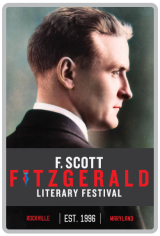Aspiring writers were invited to delve into the world of the F. Scott Fitzgerald Literary Festival and participate in the Short Story Contest by submitting their original, thought-provoking works. The festival’s dedication to promoting literary arts is further exemplified through this contest, where participants had the opportunity to contribute to the festival’s vibrant tapestry of literary exploration.
For as long as people have been telling stories, certain storytellers have aimed to push the boundaries of the form. In “Rhonda Reverse,” we meet two women who seem to be fated for tragedy when the titular psychic, Rhonda Reverse, predicts misfortune. Here, however, both the protagonist and the reader are left to wonder about the particularities of this misfortune, which creates incredible dramatic tension that keeps readers on the edge of their seats. But the real magic here isn’t metaphysical or psychic in nature: it’s in the prose writing itself. “Rhonda Reverse” might best be described as a magic trick or a storytelling innovation. However one might want to categorize the story, one thing is abundantly clear here: this young writer’s imagination is wild and capacious. This story is an experimental accomplishment, one that’d be hard for even the most seasoned of writers to get right.
A bleak coastline, a town that’s seen better days, a hurricane on the horizon. These are the ingredients of “In Memoriam,” a story that one might mistake, at first, for something out of Melville. When the story quickly turns, it does so deftly and deliberately, and what at first seems a pastoral story of unlikely friendship quickly becomes something like a meditation on time, nostalgia, and perseverance. Filled with rich descriptive language and snappy dialogue, “In Memoriam” is a difficult story to categorize: Is it fantasy? Body horror? A tragedy? Who can really say? In that particular way, “In Memoriam” is the kind of story that both entertains and challenges readers even as it defies neat and easy description. It’s original stories like these that advance our understanding of what stories can do.
What are the barriers to being our truest selves? How does a person manage terrible loss at an early age? Can we ever fully recover from lost love? These are just a few of the questions raised in “The Knight,” a story that at first seems like a mournful elegy to the protagonist’s long lost first love. The tenderness in this story is palpable, as is its clearly humane stance on what it means to be different in a world that often demands conformity. By the story’s ending, what at first seems like a sad reverie becomes, ultimately, a hopeful reminder that true love never truly ends.

